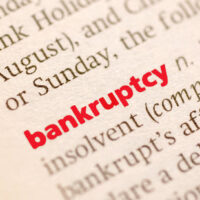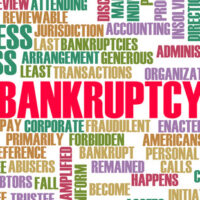Recent Blog Posts

Behind on Car Payments? Understanding Your Rights Before Repossession Happens
Falling behind on car payments can feel like a race against time. As the late notices pile up, the fear of walking out to find your vehicle gone becomes very real. But while the situation is serious, it’s not hopeless. If you’ve missed payments or are struggling to keep up, it’s important to know… Read More »

How to Handle a Sheriff’s Sale or Trustee’s Sale in California: Legal Tools to Delay or Prevent It
Facing a sheriff’s sale or trustee’s sale in California can feel like the final blow in a long and stressful financial battle. Whether the result of mortgage foreclosure or vehicle repossession, these public sales often mark the last stage before you lose your home or personal property. But even at this point, all may… Read More »

How to Find a Qualified Bankruptcy Attorney
Filing for bankruptcy is a significant financial decision that can provide relief from overwhelming debt and offer a fresh start. However, the bankruptcy process is complex, and hiring a qualified bankruptcy attorney is crucial to ensuring your case is handled correctly. A knowledgeable attorney can help you understand your options, protect your assets, and… Read More »

Can a Business Bankruptcy Affect Your Personal Credit Score?
Running a business comes with financial risks, and sometimes, despite your best efforts, bankruptcy becomes necessary to resolve overwhelming debts. If you own a small business and are considering filing for business bankruptcy, you may be wondering whether it will impact your personal credit score. The effect of a business bankruptcy on your personal… Read More »

What Happens to Business Debts When a Small Business Closes?
Closing a small business is never an easy decision. Whether due to financial struggles, declining sales, or other unforeseen circumstances, shutting down a business comes with many challenges—one of the biggest being how to handle outstanding business debts. Many small business owners worry about who will be responsible for the debt, how creditors will… Read More »

Can You File for Bankruptcy and Divorce at the Same Time?
Filing for bankruptcy and going through a divorce are two of the most stressful legal and financial experiences a person can face. If you are struggling with overwhelming debt while also preparing for a divorce, you may wonder whether it is possible—or even beneficial—to file for both at the same time. While legally permitted,… Read More »

How Do I Know When It’s Time to File for Bankruptcy for My Overwhelming Credit Card Debt?
Credit card debt can quickly spiral out of control, leaving you feeling trapped in a cycle of endless payments, rising interest rates, and financial stress. If you’re struggling to keep up with minimum payments, facing collection calls, or relying on more credit to cover basic expenses, you may be wondering if bankruptcy is the… Read More »

What Is a FICO Score? Understanding Your Creditworthiness
Your FICO Score is one of the most critical numbers in your financial life. It determines whether you can qualify for loans, secure a mortgage, get approved for a credit card, and even influence the interest rates you receive. But what exactly is a FICO Score, how is it calculated, and what can you… Read More »

How Long Does Bankruptcy Stay on Your Credit Report and What You Can Do About It?
Bankruptcy can be a powerful tool for eliminating overwhelming debt and achieving a fresh financial start. However, many people worry about how long bankruptcy will impact their credit report and credit score. While bankruptcy does remain on your credit report for several years, its effect lessens over time, and there are proactive steps you… Read More »

Credit Repair vs. Credit Rebuilding: What’s the Difference After Bankruptcy?
Filing for bankruptcy can provide a much-needed financial reset, but it also impacts your credit score and ability to secure loans in the future. Once your bankruptcy case is finalized, you may start seeing advertisements for credit repair services that promise to “fix” your credit score quickly. However, rebuilding your credit is a more… Read More »
